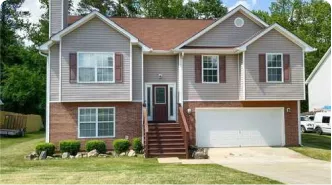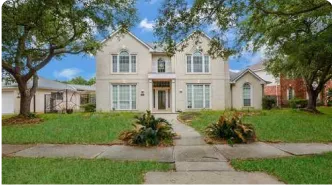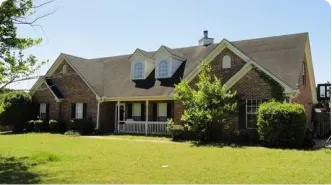Iowa's heartland charm and scenic landscapes make it an appealing destination for short-term rentals. This guide navigates through Iowa's rental laws, detailing how local nuances blend with state regulations, offering a roadmap for homeowners and investors in the Airbnb market.
Iowa's Definition of a Short Term Rental
Understanding the landscape of short-term rentals is crucial for anyone involved in this dynamic market. In Iowa, the definition and regulations surrounding short-term rentals such as Airbnb have specific nuances that are important for both property owners and renters to comprehend. This article delves into how Iowa defines these rentals, explores any exceptions to this rule, and compares these regulations with those in other major states across the U.S.
In Iowa, short-term rentals are defined by Iowa Code Section 414.1 as any dwelling offered for a fee for thirty days or less. This includes any individually or collectively owned single-family house, dwelling unit, condominium unit, cooperative, or timeshare. Specifically for tax implications, the state considers reservations of 90 consecutive days or less as short-term rentals, with the rental becoming tax-exempt after the 90th consecutive day.
Cities and counties in Iowa are significantly restricted in how they can regulate short-term rental properties following the passage of House File 2641 in 2020. They cannot prohibit short-term rentals, require specific licenses or permits for them, or charge fees specifically targeting short-term rentals. Any enforcement actions must be applied in the same manner as those applicable to similar properties that are not short-term rentals. Additionally, short-term rentals must be classified as residential land use for zoning purposes.
However, cities maintain authority to regulate short-term rentals for specific purposes including:
- Protection of public health and safety related to fire and building safety
- Sanitation and traffic control
- Residential noise, property maintenance, and nuisance issues
- Limiting illegal activities on the property
- Requiring emergency contact information for the property
Iowa's approach to defining and regulating short-term rentals is relatively straightforward, with a focus on limiting local government restrictions and providing a uniform enforcement framework. This contrasts with the more complex and varied landscape in other states, where regulations can significantly differ even within the same state. As the short-term rental market continues to evolve, it's essential for property owners, renters, and stakeholders to stay informed about these regulations to navigate this sector successfully.
Starting a Short Term Rental Business in Iowa
Iowa, with its expanding tourism and visitor industry, offers a lucrative opportunity for entrepreneurs looking to start a short-term rental business, particularly through platforms like Airbnb and VRBO. However, understanding and complying with local regulations, inspections, and tax requirements is crucial for success in this sector.
Starting a short-term rental business in Iowa involves several essential steps:
- Understand State and Local Framework: While state law limits local restrictions, cities can still enforce general rental property regulations. Research your specific city's approach to rental properties, as they often apply general rental codes to short-term rentals rather than creating specific short-term rental ordinances.
- Meet Property Standards: Cities may require short-term rentals to maintain properties in good condition, ensure proper safety measures, and adhere to local housing codes. This includes functional smoke detectors, carbon monoxide detectors where required, and fire extinguishers. Properties must be free from rodent infestation and maintain structural soundness.
- Navigate Inspection Requirements: In Iowa, cities often have unique provisions and inspection schedules for rental properties. Inspection cycles vary by location - Iowa City requires inspections every two years, while many other cities operate on three-year cycles. These inspections focus on life-safety, fire-safety, and general maintenance requirements.
- Register with Tax Authorities: All hosts must register with the Iowa Department of Revenue to collect lodging taxes. Registration can be completed online at tax.iowa.gov or through GovConnectIowa. Upon registration, you'll be assigned a filing frequency, typically monthly for most operators.
- Understand Tax Collection Requirements: Hosts must collect the 5% state hotel and motel tax on all rentals of 90 days or less. This applies to the total rental rate including all fees such as cleaning fees and service charges. Many Iowa cities also impose local hotel and motel taxes of up to 7% in addition to the state tax. Notably, platforms like Airbnb and VRBO are now required to collect and remit these taxes on behalf of hosts for bookings made through their platforms.
- File Tax Returns Consistently: Tax returns must be filed by the last day of the month following the month in which taxes were collected. Even if you have no rental income in a given period, you must still file a zero dollar return to maintain compliance.
Starting a short-term rental business in Iowa requires diligence in understanding and complying with local regulations, tax laws, and safety standards. Staying informed and ensuring all requirements are met will not only ensure legal compliance but also contribute to a successful and sustainable business in the thriving Iowa tourism sector.
Insurance and Liability Requirements
While Iowa state law doesn't mandate specific insurance requirements for short-term rentals, individual cities have implemented their own standards. Des Moines notably requires short-term rental operators to maintain a minimum of $500,000 in liability insurance covering bodily injury and property damage related to the rental. This requirement reflects the evolving nature of the short-term rental industry and cities' efforts to protect both hosts and guests.
Property owners should consider coverage beyond basic requirements, as standard homeowner's insurance policies often exclude commercial rental activities. Many hosts opt for specialized short-term rental insurance or commercial liability policies to ensure adequate protection.
License Renewals and Ongoing Compliance
Maintaining compliance for short-term rentals in Iowa involves navigating a mix of local and state regulations. The process varies significantly depending on your location, as the state does not have a centralized licensing system for short-term rentals. However, cities may require general rental property permits that apply to all rentals including short-term rentals.
To maintain compliance, property owners should:
- Verify Zoning Compliance: While state law requires short-term rentals to be classified as residential use, local zoning ordinances still apply. Ensure your property remains compliant with any zoning changes or updates in your area.
- Maintain Required Permits: If your municipality requires a rental permit, these typically need renewal on regular cycles. Des Moines, for instance, issues rental certificates valid for five years before requiring ongoing license renewal. Note that while state law prohibits fees specifically for short-term rentals, cities may charge general rental permit fees that apply to all rental properties.
- Stay Current with Tax Obligations: Continue filing monthly tax returns with the Iowa Department of Revenue, even during periods without rental income. Failure to maintain consistent filing can result in penalties and interest charges.
- Keep Safety Standards Updated: Maintain all required safety equipment including smoke detectors, carbon monoxide detectors, and fire extinguishers. Iowa City has added radon testing requirements effective July 1, 2021, requiring testing and potential mitigation for certain properties.
- Document Guest Information: Many cities require maintaining guest logs with names and contact information, which must be available for inspection by city officials upon request.
Understanding and complying with the diverse and localized regulations for short-term rentals in Iowa is crucial for operating legally and successfully. Hosts should pay close attention to their specific city or county ordinances, stay updated on tax obligations, and ensure their properties meet all health and safety standards.
Iowa Short Term Rental Taxes
Iowa's thriving short-term rental market is subject to a comprehensive tax structure that affects all operators. These requirements apply whether you're renting through platforms like Airbnb and VRBO or marketing independently.
State Tax Requirements
In the state of Iowa, any dwelling offered for a fee for thirty days or less triggers tax obligations. State law mandates a 5% hotel and motel excise tax on the gross receipts from short-term rentals. This tax encompasses the total rental rate, including any cleaning fees, pet fees, or service charges paid by guests. Only refundable deposits that are actually returned to guests are exempt from taxation.
The tax applies to the first 90 consecutive days of any rental to the same person. After the 90th day, the rental becomes exempt from hotel and motel tax, though this rarely affects typical short-term rental operations. Property owners are required to file tax returns each filing period regardless of their rental income, meaning zero dollar returns must be filed during periods without bookings.
Local Tax Additions
Cities and counties in Iowa may impose local hotel and motel taxes of up to 7% in addition to the state tax, bringing the potential total tax burden to 12%. These local taxes are collected and remitted along with state taxes through the same filing system. Importantly, local option sales taxes do not apply to lodging, and conference or banquet rooms are exempt from hotel and motel taxes.
Platform Tax Collection
A significant development for hosts is that major platforms including Airbnb and VRBO are now required to collect and remit both state and local hotel and motel taxes for bookings made through their systems. However, hosts remain responsible for registering with the Iowa Department of Revenue and may need to collect taxes directly for any bookings made outside these platforms.
Filing and Compliance
Tax returns are due the last day of the month following the month of collection. The Iowa Department of Revenue assigns filing frequencies upon registration, with monthly filing being standard for most operators. All filing is done electronically through GovConnectIowa, and credit card payments are accepted though convenience fees may apply.
Iowa Short Term Rental Laws by City
Des Moines Short Term Rental Laws
Des Moines, the state's capital and one of its most populous cities, has developed comprehensive guidelines for short-term rentals while working within state law limitations. The city defines a short-term commercial rental as the use of a household unit for commercial lodging for less than 30 consecutive days.
Key regulations in Des Moines include:
- Age and Occupancy Standards: Every rental must include at least one adult aged 21 or older. Rentals are limited to a single party of individuals, with occupancy limits based on the number of bedrooms. Only one short-term rental is allowed per single-household detached structure.
- District-Specific Requirements: In NX2a zoning districts, short-term rentals must be either owner-occupied or tenant-occupied with the property owner's written consent. This requirement helps maintain neighborhood character in certain residential areas.
- Permit and Approval Process: Operators need approval from the city's Board of Adjustment and must obtain a rental certificate. This certificate is valid for five years before an ongoing license is required. Operators may also need a conditional use permit depending on the property's location.
- Insurance Mandate: Des Moines requires minimum liability insurance of $500,000 covering bodily injury and property damage related to the rental operation.
- Safety and Maintenance Standards: Properties must comply with local building codes and maintain specific standards including no inoperative vehicles on the property, structural soundness free from rodent infestation, and adequate off-street parking.
- Enforcement and Penalties: The city's Neighborhood Inspection Zoning Division handles enforcement, with violations potentially resulting in fines up to $750 per day and possible permit revocation.
For assistance, contact the Des Moines Neighborhood Inspection Zoning Division at 515-283-4046 or nid@dmgov.org.
Cedar Rapids Short Term Rental Laws
Cedar Rapids defines short-term rentals as lasting 31 consecutive days or less. While less detailed information is publicly available compared to Des Moines, the city has established clear requirements:
- Registration Requirements: All rental properties including short-term rentals must be registered with the city and obtain a Certificate of Compliance through Code Enforcement Housing Inspections.
- Inspection Standards: Properties must meet Housing Quality Standards inspections, focusing on safety and habitability requirements.
- Penalty Structure: The city enforces a graduated penalty system with fines of $500 for the first offense, $750 for the second offense, and $1,000 for subsequent offenses within a 12-month period.
For information, contact the Cedar Rapids Housing Inspections Division at 500 15th Ave SW.
Iowa City Short Term Rental Laws
Iowa City has developed detailed requirements for short-term rentals, defining them as rentals of less than 30 consecutive days. The city takes a comprehensive approach to regulation:
- Permit Requirements: All short-term rentals must obtain a rental permit from the Neighborhood Inspection Zoning Division. Applications must include proof of insurance, a parking plan, occupancy limits documentation, and 24-hour contact information.
- Inspection Schedule: Iowa City conducts inspections every two years, more frequent than many other Iowa cities. These inspections focus on life-safety, fire-safety, and general maintenance items.
- Unique Safety Requirements: Effective July 1, 2021, Iowa City requires radon testing for single-family and duplex units. If levels exceed 4 picocuries per liter, mitigation systems must be installed. The city also requires interconnected smoke alarms for new bedrooms.
- Space Limitations: Bedroom square footage cannot exceed 35% of the finished floor area of the dwelling, and each bedroom must have a minimum of 100 square feet.
Contact Iowa City Neighborhood and Development Services at 319-356-5120 for permit information.
Sioux City Short Term Rental Laws
Sioux City requires registration and permits for all short-term rentals operating within city limits:
- Registration Process: Annual rental registration is required along with a specific short-term rental permit obtained through the Inspection Services department.
- Occupancy Restrictions: The city limits occupancy to three people per bedroom, one of the more specific occupancy formulas among Iowa cities.
- Market Presence: Approximately 650 permitted short-term rentals currently operate within Sioux City limits, indicating an established and regulated market.
Other Iowa Communities
While comprehensive statewide data isn't available, other Iowa communities including Waterloo, Council Bluffs, and Ames have varying approaches to short-term rental regulation. State law prevents outright prohibition, but each community may implement general rental property standards that affect short-term rental operations. Prospective hosts should contact their local planning or building departments for specific requirements.
Tax Exemptions and Special Cases
Understanding tax exemptions can significantly impact your short-term rental operation:
- Extended Stay Exemption: Rentals to the same person exceeding 90 consecutive days become exempt from hotel and motel tax after the 90th day. The first 90 days remain taxable and non-refundable even if the stay ultimately extends beyond this threshold.
- Government Contracts: Federal government contracts paid with direct federal funds are exempt from both state and local hotel and motel taxes. However, federal employees paying with personal funds, even when reimbursed, must pay all applicable taxes. State and local government contracts became taxable as of July 1, 2009.
- Religious Exemptions: Lodging furnished on property owned by religious institutions for religious retreats or functions is exempt from hotel and motel taxes, provided the lodging is not offered to transient guests generally.
- Educational Institutions: Sleeping rooms in dormitories at all Iowa universities and colleges are exempt from hotel and motel tax.
Enforcement and Compliance Trends
Iowa's enforcement of short-term rental regulations reflects the balance between state limitations and local oversight. While state law prevents discriminatory enforcement against short-term rentals, cities are finding ways to ensure compliance through general rental property regulations.
Cities report varying levels of enforcement activity. Des Moines has increased enforcement following its 2020 ordinance updates, while smaller communities often rely on complaint-based enforcement due to resource limitations. The trend suggests growing professionalization of the short-term rental industry, with cities focusing on safety standards and neighborhood compatibility rather than prohibition.
Platform accountability has also increased, with Airbnb and VRBO now required to collect and remit taxes, reducing the compliance burden on individual hosts while ensuring tax collection. This shift represents a maturation of the industry and recognition of short-term rentals as a legitimate part of Iowa's lodging ecosystem.
Best Practices for Iowa Hosts
Successfully operating a short-term rental in Iowa requires attention to both legal compliance and community relations:
- Documentation and Records: Maintain comprehensive records including guest logs, tax filings, inspection reports, and insurance documentation. Many cities require these records be available for inspection, and proper documentation protects you in case of disputes.
- Neighbor Relations: Proactive communication with neighbors helps prevent complaints that could trigger enforcement action. Provide neighbors with contact information and respond promptly to any concerns.
- Safety First: Exceed minimum safety requirements where possible. Regular testing of smoke and carbon monoxide detectors, maintaining clear evacuation routes, and providing safety information to guests reduces liability and enhances guest experience.
- Tax Compliance: Even though platforms may collect taxes, maintain your own records and understand your obligations. File returns consistently, including zero dollar returns during vacant periods.
- Stay Informed: Regulations continue to evolve at both state and local levels. Join local host groups, monitor city council agendas, and maintain contact with relevant city departments to stay ahead of changes.
Looking Forward
The short-term rental landscape in Iowa continues to evolve as cities adapt to state law limitations while addressing community concerns. The 2020 passage of House File 2641 established a framework limiting local restrictions, but cities retain authority over general health, safety, and nuisance issues.
Future trends likely include continued standardization of safety requirements across cities, potential adjustments to tax structures, and ongoing refinement of the balance between property rights and community standards. The growth of the short-term rental market in Iowa, combined with the state's tourism development goals, suggests continued support for the industry within appropriate regulatory boundaries.
Takeaway
In Iowa, successful short-term rentals hinge on understanding the interplay between state protections and local requirements. State law prevents prohibition and discriminatory regulation, but cities maintain authority over safety, nuisance, and general rental property standards. From rural retreats to urban dwellings, staying informed about both state law and local ordinances ensures a compliant and prosperous rental venture.
Property owners benefit from Iowa's relatively favorable regulatory environment compared to many other states, but success still requires attention to tax compliance, safety standards, and community relations. By understanding these requirements and maintaining good practices, hosts can thrive in Iowa's growing short-term rental market while contributing positively to their communities and the state's tourism economy.
.svg)






.webp)







%201.webp)
%203.webp)



%201.webp)
.webp)


.webp)
